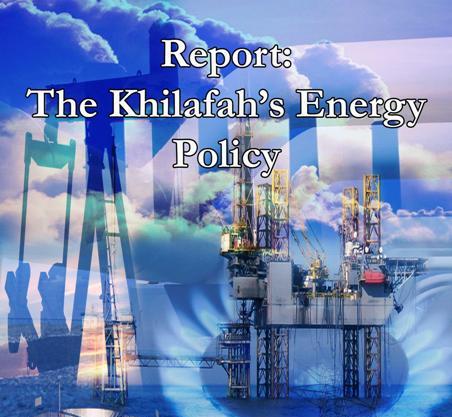 Download the full report from here
Download the full report from here
Energy is of critical importance in the 21st century, without it, today’s transportation, industry and agriculture could not exist. Without the harnessing of energy the industrial revolution may not have taken place. Due to this, energy policies around the world are dominated by energy efficiency, energy dependence and energy security. Increased awareness of the effects of global warming has also led to international debate and action for the reduction of greenhouse gas emissions.
Oil as an energy source revolutionised industry in the early 1900’s. Not only does it provide the petrol and diesel we use for transportation. But its scope widens when looked within the context of a modern industrialised society. Oil as a source of energy is easy to extract, transform, transport and distribute. Not only is it a highly concentrated, mobile energy source, but it is used to produce an enormous range of materials used in the making of many everyday goods. The artificial synthesis of by-products from oil led to the growth in the petrochemicals industry. One of the by-products is plastics and lubricants. But equally important is the manufacturing of solvents (alcohols) through oil, without which there would be no chemicals industry. Nor would the existing agricultural setups present in much of the world exist without the free flowing hydrocarbons, since farming equipment consume oil. Also fertilizer would not exist were it not for the hydrogen that is cracked from natural gas. This is the method of extracting fertilizer or Ammonia to form fertilizer which is used in hundreds and thousands of farms across the globe – a billion dollar industry. In very broad terms the development of the industrial states has been almost entirely due to the ability of (Western) societies to harness energy in order to develop and operate the technology that enables the current cultures and lifestyles.
Energy policy is the manner in which governments decide to address issues of energy development including energy production, distribution and consumption. The Khilafah will on its emergence face similar challenges as the Western states did during the industrial revolution in harnessing its energy needs to ensure sufficient sources of energy are available for industry and domestic electricity. For these reasons the Khilafah will need to adopt an energy policy to ensure all energy sources, infrastructure and assets follow the same direction. Such a policy will need to be built based on the energy realities of the Muslim world. Such realities are constantly changing therefore what is being presented are the author’s views on energy policy based upon the current energy circumstances of the world.
19th August 2009
Adnan Khan
Coming soon – New Book: Constructing an Industrialised Muslim World
Iran made history in February 2009 when it launched into orbit the Muslim world’s first domestically constructed satellite. What made this development even more stunning is the fact that Iran has managed to develop advanced ballistic missiles, satellites and is now the only Muslim country to have an indigenous Space programme.
Industrialisation can be defined as when an economy is geared around manufacturing and this then acts as a stimulus to other sectors of the economy. An example of this was the British Empire which made manufacturing central to its economy, the manufacturing of ships, ammunitions and mining propelled Britain into a global superpower with the ability to rapidly mobilise for war and allowed it to colonise the world.
Possessing an independent manufacturing base makes a nation self-sufficient and become capable of opposing the leading states. By not industrialising a nation will not be politically and economically independent, it will be reliant on other nations for its defence and it will always be dependent on the will of other states, like the Islamic world is today.
Although the Muslim world has made some industrial developments, the overall economic and industrial standing of the Muslim world is very far from where it can be and should be. The Muslim world today lags far behind the industrial nations of the world. Whilst the West went through industrialisation 150 years ago the Muslim world has remained largely de-industrialised and in many cases reliant on the developed world.
This book assesses the current status of the economies and position of the industries in the Muslim world. It will review and analyse many of the claims Western analysts have claimed about the prospects of industrialisation in the Muslim world. The reality and prospects of the Muslim world will be shown alongside the myths that unfortunately have become accepted as truths amongst Muslims. A general blueprint will then be outlined showing how the Khilafah could industrialise the Muslim lands and change the status of the Muslim world from its current position to one of a superpower.
